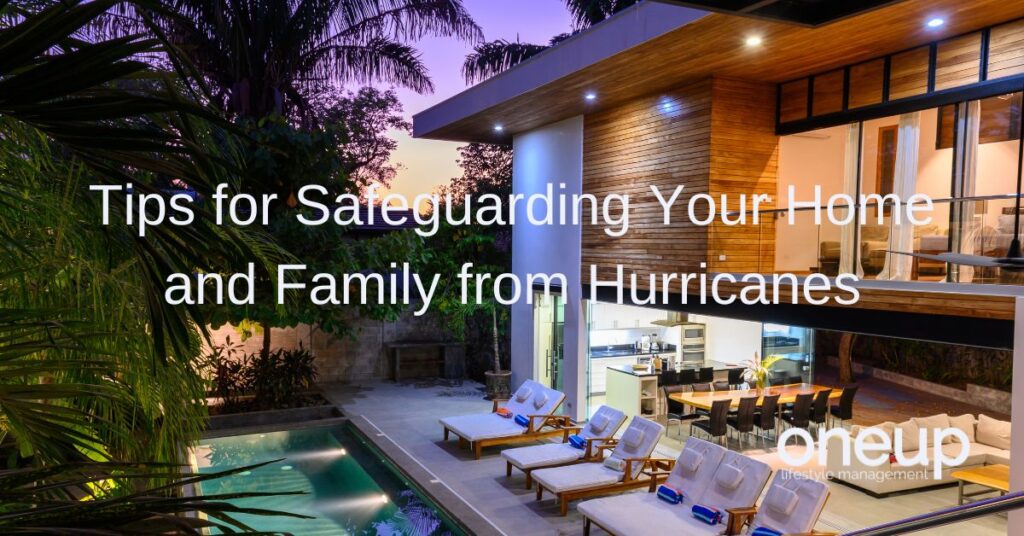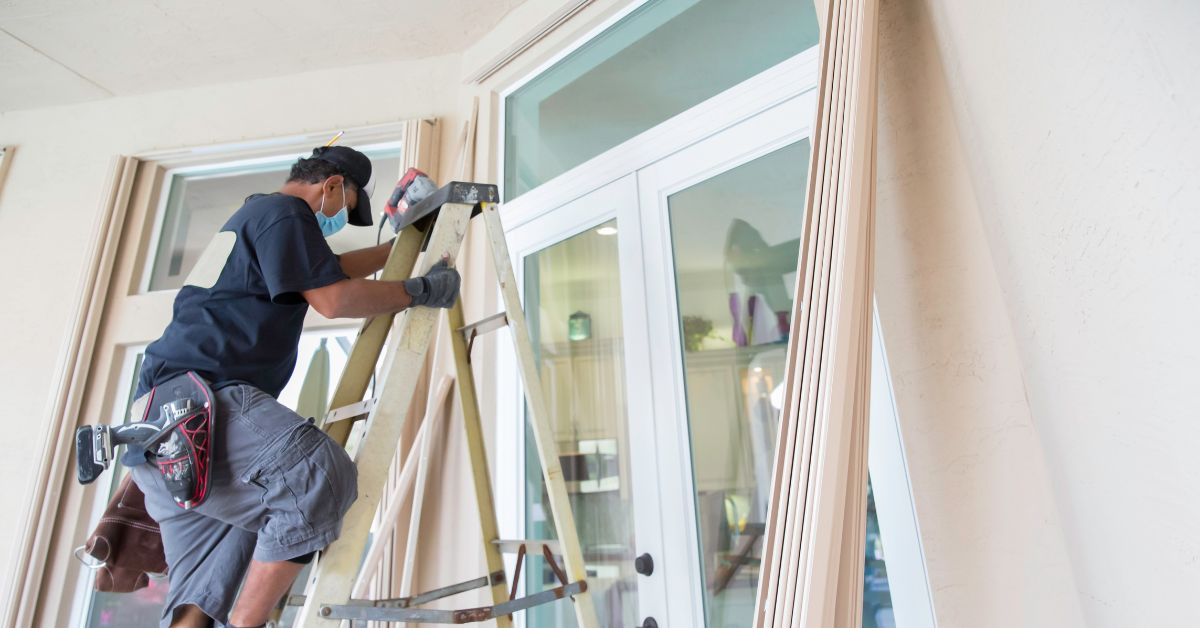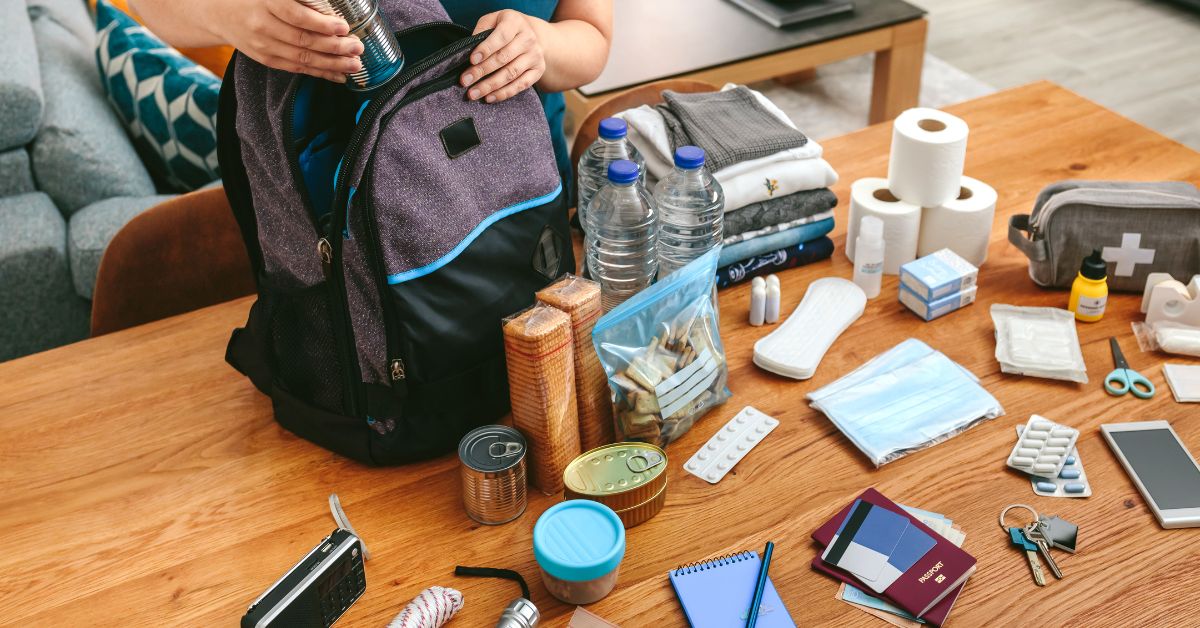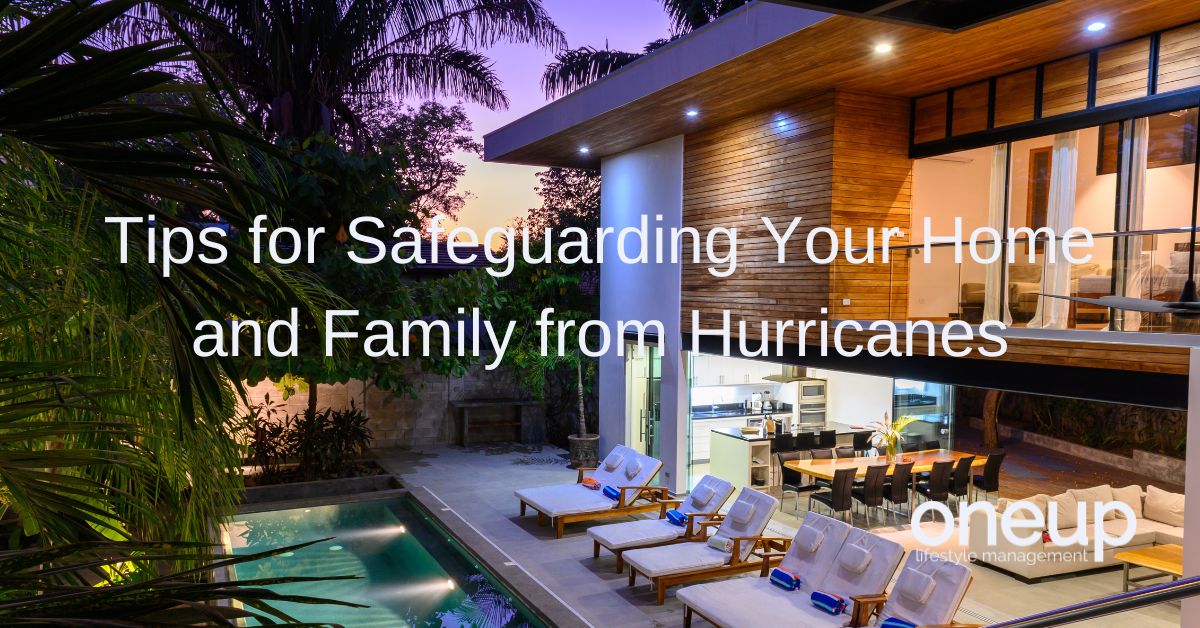
How to Choose the Right Lifestyle Management Company for Your Needs
As our lives become more hectic and busy, we often find ourselves with limited time to manage the many aspects of our personal and professional

Hurricanes are one of the most devastating natural disasters that can hit your home. They can cause severe damage to your property and put your safety at risk. Fortunately, there are several ways to protect your home from hurricanes. In this guide, we will share the top tips on how to hurricane-proof your home and protect your family during hurricane season.
Knowing how to hurricane-proof your home can significantly reduce the risk of damage. Some of the ways to prepare your home include:
– Trim trees and bushes around your home: Overhanging branches and limbs can break off during high winds and cause damage to your home or neighboring properties. Trimming trees and bushes around your home can reduce the risk of such damage.
– Secure loose outdoor items: Outdoor furniture, potted plants, and trash cans can become projectiles during a hurricane, causing damage to your property and endangering nearby people and structures. Securing these items or moving them indoors can prevent them from causing harm.
– Install storm shutters or impact-resistant windows and doors: Storm shutters or impact-resistant windows and doors can prevent debris from breaking through your windows and doors, protecting your home from high winds and flying debris.
– Reinforce your garage door: Garage doors are often the weakest part of a home and can fail during a hurricane, allowing high winds and water to enter. Reinforcing your garage door can prevent this from happening.
– Seal gaps and cracks: Gaps and cracks in your home’s foundation and walls can allow water to enter your home and cause damage. Sealing these gaps and cracks can prevent water from entering your home.
– Install hurricane straps or clips to secure your roof: High winds can lift the roof off of a home during a hurricane, causing significant damage. Installing hurricane straps or clips can secure the roof to the walls, preventing it from being lifted off.
– Secure any loose items on the roof: loose items on your roof can become dangerous projectiles, causing damage to your property and neighboring buildings. Items such as old TV antennas or spinning weather vanes can be easily ripped off by high winds, leaving behind holes or damage to your roof. This damage can then lead to water leaks and further property damage.
– Prepare ahead of time for outdoor pets and livestock: Making arrangements in advance for outdoor pets and livestock is crucial during a hurricane. The storm can be extremely dangerous for animals, and high winds, heavy rain, and flooding can pose significant threats to their safety and well-being. By making arrangements in advance, such as securing a safe place for them to shelter, ensuring access to food and water, and complying with local regulations, you can help protect your pets and livestock from harm and ensure their survival during and after the hurricane.
Implementing these measures can significantly reduce the risk of damage to your home during a hurricane. It is important to do so well in advance of the storm’s arrival to allow enough time for installation and preparation. Remember to always follow the instructions and recommendations of local authorities to ensure your safety during a hurricane.

Learn how to hurricane-proof your home with a comprehensive insurance plan that includes wind and flood coverage. This is a critical step in preparing for hurricanes. If you live in an area that is prone to hurricanes, purchasing insurance can provide peace of mind and financial protection in the event of damage or destruction to your property.
When purchasing insurance, it is important to read the policy carefully and understand the coverage limits and deductibles. Consider working with a reputable insurance agent or broker who can help you choose the right coverage for your needs and budget.
Staying informed during a hurricane is crucial to protecting your house for several reasons.
Firstly, hurricanes can be unpredictable, and weather conditions can change rapidly. Therefore, it is important to monitor the storm’s path and intensity to know when to take action to protect your home.
Secondly, local authorities may issue evacuation orders or other instructions, and staying informed will ensure that you are aware of any potential threats to your home and can take appropriate action.
Thirdly, staying informed can help you stay calm and avoid panic during a stressful situation. By knowing what to expect and how to prepare, you can feel more in control and better equipped to protect your home and family.
Overall, staying informed during a hurricane can help you make informed decisions, take appropriate action, and stay safe during a potentially dangerous event.
Having an emergency kit ready can be a lifesaver during a hurricane. Your emergency kit should include:
– Non-perishable food and water for at least three days
– A first-aid kit
– Flashlights and extra batteries
– A battery-powered radio
– Cash and important documents in a waterproof container

Evacuating during a hurricane is crucial for your safety and survival. Hurricanes can cause storm surges, high winds, heavy rain, power outages, and other hazards. Storm surges can lead to flooding in coastal areas, high winds can cause extensive damage to structures and flying debris, heavy rain can cause flooding and landslides, and power outages can be dangerous for those with critical needs. Evacuation can also assist emergency responders and rescue teams in their efforts to assist those in need. Therefore, if advised to evacuate during a hurricane, it is important to take it seriously and follow local authorities’ instructions, as it could save your life.
In conclusion, learning how to hurricane-proof your home and stay safe requires preparation and planning. By taking steps to secure outdoor items, fortify windows and doors, and reinforce vulnerable areas of your home, you can greatly reduce the risk of damage during a storm. It is also important to have an emergency kit ready and to follow the instructions of local authorities if evacuation is necessary. With these precautions in place, you can help keep your home and family safe during hurricane season.

As our lives become more hectic and busy, we often find ourselves with limited time to manage the many aspects of our personal and professional

Hurricanes are one of the most devastating natural disasters that can hit your home. They can cause severe damage to your property and put your


© One Up Lifestyle Management. 2025 All Rights Reserved.
Web Design By Filia Digital